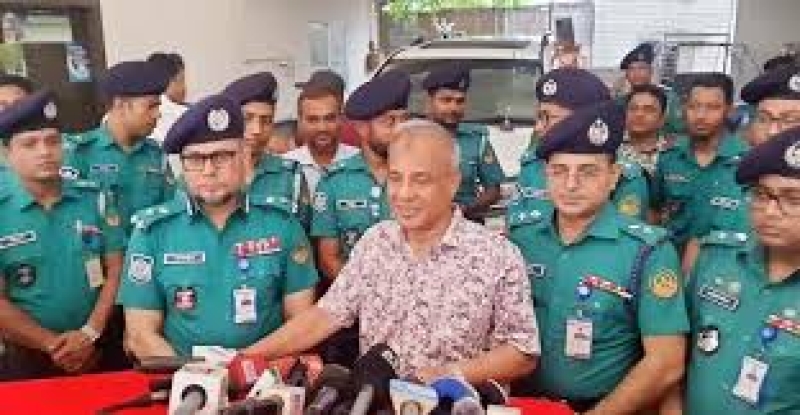- Puppet show enchants Children as Boi Mela comes alive on day 2 |
- DSCC Admin Salam’s drive to make South Dhaka a ‘clean city’ |
- 274 Taliban Dead, 55 Pakistan Troops Killed |
- Now 'open war' with Afghanistan after latest strikes |
- Dhaka's air quality fourth worst in world on Friday morning |
Corruption Is Bangladesh’s Top Issue, Says Adviser

Home Affairs Adviser Lieutenant General (Retd) Jahangir Alam Chowdhury has said that corruption is the most serious problem facing Bangladesh today, describing it as something that has “penetrated every pore of the system.”
Speaking during a visit to Gacha Police Station under Gazipur Metropolitan Police on Tuesday morning, he urged public cooperation in fighting corruption and called on journalists to raise awareness. “If you speak the truth, a lot can be fixed,” he said. “Please help people understand how serious the issue is.”
Addressing questions about police reform, the adviser said the process is ongoing. A pilot initiative has been introduced to improve access to justice. “Previously, people said police were reluctant to take GDs or cases. Now, we’ve made it possible to file them online from home. This eliminates the need to visit the police station and reduces chances of harassment,” he explained.
He also announced plans to build glass-walled interrogation rooms to ensure transparency. “Anyone can observe whether suspects are being mistreated. We’re taking cases online to end the business of filing false reports,” he added. “If any police member is involved in corruption or case trading, they will be held accountable. No one will be spared.”
The adviser revealed that 84 individuals from various police ranks have been reassigned, and 30–40 sent home due to involvement in unethical practices. “If I need to send another 30–40 home, I won’t hesitate,” he said firmly.
When asked about delays in investigating cases related to the August 5 anti-discrimination movement, he noted a shift in how complaints were filed. “In the past, police named a few and listed many as unidentified. This time, many of you named 10–15 and accused hundreds more as unidentified. That’s complicating the process.”
He emphasized the importance of fair investigations: “We will ensure that those who are truly guilty face justice. But no innocent person will be punished.”

